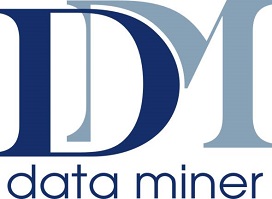About this course
This three-day accredited course provides participants with a thorough grounding in the DSDM Agile Project Management framework. The course included the in-depth Practitioner-level examination of how a project manager applies the framework.
Presented by skilled lecturers with extensive experience in the practical application of project management, the course includes examination coaching and practice using sample questions.
This course does not cover the Scrum Framework.
Delegates should be prepared to set aside time to revise for the Practitioner exam in the evenings after the course lecture finishes. This includes studying the course Handbook, and working through sample exam questions.
At course completion
At the end of this course you will be able to:
- Set up an Agile project
- Identify appropriate people for Agile roles
- Define Increments and Timeboxes to keep a project on track
- Manage a Solution Development Team
- Communicate with business stakeholders in a project environment
- Use Agile techniques, including prioritisation of requirements, to ensure on-time project delivery
- Present the benefits of Agile approaches to senior management
- Identify risks to delivery of projects managed using the DSDM Agile approach
Examination
- Objective examination. 4 questions (20 points per question)
- 40/80 points required to pass the exam (50%)
- Duration 2.5 hours
- Open book (only the official AgilePM manual is allowed)
Practitioner Preparation
- Roles and Responsibilities – the project manager’s view
- Agile Project Management through the Lifecycle
- The Effective Use of the Products
- Deliver on Time – Combining MoSCoW and Timeboxing
- People, Teams, and Interactions
- Requirements and User Stories
- Estimating – How and When
- Project Planning throughout the Lifecycle
- Quality – Never Compromise Quality
- Risk Management
- Tailoring the Approach
- Agile Practitioner Examination
- An understanding of networking fundamentals.
- An understanding of basic AD DS concepts.
- An awareness and understanding of security best practices.
- Basic knowledge of server hardware.
- Experience working with, and configuring, Windows client operating systems, such as Windows 7 or Windows 8.
Additionally, students would benefit from having some previous Windows Server operating system experience.
All of the above prerequisites can be met by having knowledge equivalent to, or by attending, course 10967A: Fundamentals of a Windows Server Infrastructure because this course builds upon knowledge and skills covered in that course.
Auditoriniai mokymai
| Pradžios data | Trukmė, d. | Kurso pavadinimas | Kaina, € | Statusas |
| 2023-02-13 | 5 | 20410: Installing and Configuring Windows Server 2012 | 1500 | |
| 2023-02-21 | 5 | 20412: Configuring Advanced Windows Server 2012 Services | 1500 | |
| 2023-03-06 | 5 | 20411: Administering Windows Server 2012 | 1500 | |
| 2023-03-27 | 5 | 10969: Active Directory Services with Windows Server | 1500 | |
| Užklausti | 5 | Administering the Web Server (IIS) Role of Windows Server (nuotolinė klasė - ENG) | 1500 | Organizuojamas |
| Užklausti | 5 | Installing and Configuring Windows Server 2012 (nuotolinė klasė - ENG) | 1500 | Organizuojamas |
| Užklausti | 5 | Fundamentals of a Windows Server Infrastructure (nuotolinė klasė - ENG) | 1500 | Organizuojamas |
| Užklausti | 5 | Active Directory Services with Windows Server (nuotolinė klasė - ENG) | 1500 | Organizuojamas |

